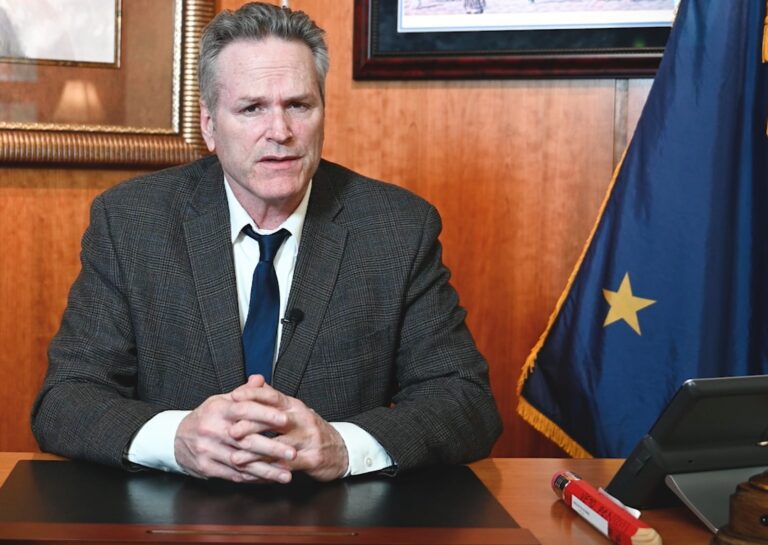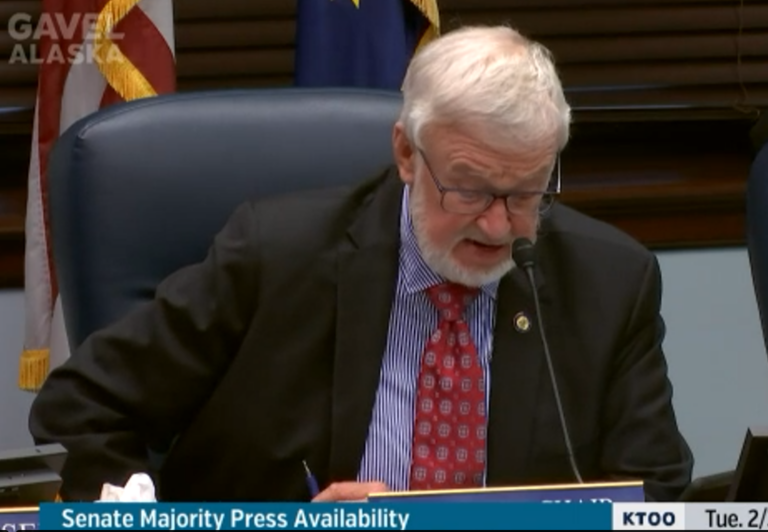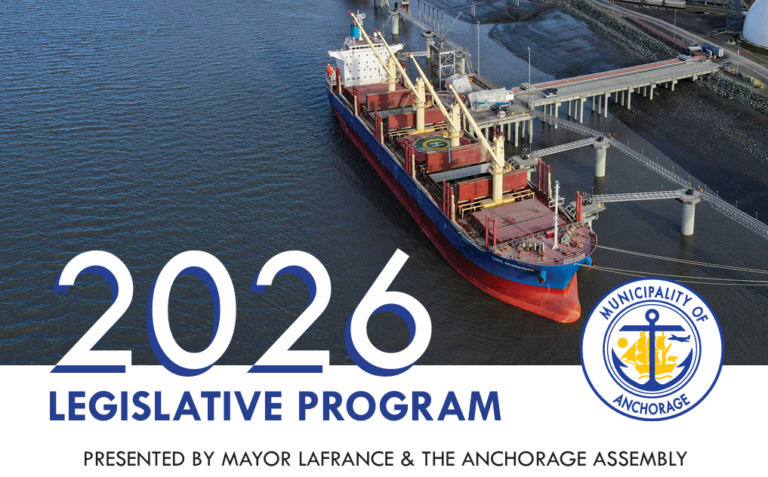By Nathaniel Herz
Editor’s Note: This piece was originally published in Northern Journal, a newsletter and news website. Nathaniel Herz is an independent journalist and the founder and editor of Northern Journal. Nathaniel has given Must Read Alaska express permission to republish his gubernatorial candidate survey series.
We’re back with the next edition of our recurring survey of the more than a dozen candidates running to be Alaska’s next governor.
This week’s questions revolve around a huge — and hugely expensive — LNG export project pushed by Alaska’s current governor, Mike Dunleavy. We also asked for some book recommendations. Full questions and answers are below.
Questions: Alaska LNG/ Literature in Alaska
The Alaska LNG export project has been discussed and debated for decades, but in spite of huge sums of state money spent on it, construction has not begun.
Gov. Mike Dunleavy says the project is as close to a final investment decision as it’s ever been; skeptics point out that no customers have signed binding contracts to purchase gas and that the project’s cost would exceed $40 billion.
To support the state’s continued participation in the export project, which is now majority owned by a private developer, Glenfarne, Dunleavy has proposed budgeting $2.3 million in general funds for the state-owned Alaska Gasline Development Corp., known as AGDC, in the next fiscal year.
Question 1: Do you support this expenditure, and would you make development of the LNG export project a priority for your administration? Why, or why not?
Question 2: What’s your favorite book that’s set in Alaska, and why?
Answers from the Candidates
Q1: I support the $2.3 million appropriation and making Alaska LNG a priority. Alaska has some of the largest proven gas reserves in North America, yet families and businesses pay among the highest energy costs. Alaska LNG is not just an export project; it is the backbone of a statewide gas system that would lower heating, power, housing, and grocery costs while strengthening the private sector. This is a 50- to 100-year infrastructure investment built for the next generation, not short-term prices. The state is not funding a $40 billion project, but keeping it viable as private capital finalizes contracts. Walking away now would cost little in savings but kill long-term opportunity.
Q2: Alaska Bear Tales by Larry Kaniut is a classic and very Alaska. It’s a collection of real-life bear encounters told through hunters, bush pilots, fishermen, troopers, and longtime Alaskans. Great read.
Republican James William Parkin IV
Q1: Not as is; however, LNG could work for Alaska, if negotiated properly. We are not getting good deals on any of our resources development projects. I am 100% in support of corporations and companies in Alaska. I don’t fault them for negotiating the best deals they can for themselves. Alaska needs to do the same. For Alaska to be able to negotiate on equal footing with corps, we need a citizen owned cooperative state corporation that can develop our resources if necessary. With this kind of leverage, we could negotiate much more attractive deals for Alaska.
Q2: Alaska Bear Tails for its gruesome, true stories of bear attacks in Alaska.
Anchorage Democratic State Senator Matt Claman
Q1: I support a reasonable budget for AGDC, and $2.3 million appears reasonable. I support developing the Alaska LNG pipeline if it is economically viable, and developing alternative North Slope gas delivery and sales if the Alaska LNG pipeline is not economically viable. I continue to have questions about the $44 billion estimate, but the most important information is confidential.
Q2: John McPhee, Coming into the Country. It’s a detailed account about an important period in Alaska history.
Anchorage Doctor Matt Heilala, Republican
Q1: If Glenfarne is putting millions on the line this early, the state should match that momentum with the governor’s proposed $2.3M by ensuring AGDC has the capacity to be a strong partner and deliver this long-awaited asset. Alaskans need affordable, reliable, abundant energy, and we need it now. Affordable and abundant energy is the fertile soil that allows everything else to grow: lower heating and power bills for families, stronger local businesses, new jobs, and an economy that can thrive in every region of our state. Alaska’s gas pipeline must be a top priority of any administration, and it will be at the forefront of mine.
Q2: My favorite Alaska book is Fifty Years Below Zero by Charles Brower. It is a classic memoir every Alaskan should read. Brower’s firsthand stories from late 19th century Alaska show the harsh toll industrial whaling took on Iñupiaq communities, yet he writes with deep respect for their resilience and rich culture. These are lessons and history modern Alaskans need to know. Packed with gripping survival tales and the shift from sailing to airplanes, it captures the changes that shaped Alaska.
Matanuska-Susitna Borough Mayor Edna DeVries, Republican
Q1: Yes and yes. We have resources that need to get to market plus making gas available to many of our residents who don’t currently have it available.
Q2: The latest read is Homeless by Ric Davidge. No favorite because more coming every week.
Q1: I’m unsure — so my answer is, “I don’t know.” The proposal is subject to legislative approval — after they hold hearings to determine if this cost is justified. As Dermot Cole pointed out, recent announcements by the developers and governor have not filled in the blanks on this project. That said, the proposed project, as described, is the most promising yet. I will watch those hearings and see if the project meets my criteria: that the project 1) prioritizes a spur to Fairbanks to ensure Alaskans get the benefit of the gas; 2) that, along with taxes, the project pay us in units of gas provided to us to ensure a steady supply of gas that meets projected Alaska demand; finally, 3) that the developer foot the bulk of the bill — not the state.
Q2: My first thought was the “Bush Blues” detective series set in Western AK by Sitka’s Sheldon Schmidt — but that may be because I’m a named character in the books. But my favorite is either Charles Wohlforth’s “The Fate of Nature” or “The Whale and the Super Computer”. The latter captures the dichotomy — and synchronicity — between western and Indigenous “science” on the North Slope and the impact of climate change on culture. The first does the same in Prince William Sound. Both are beautiful.
Q1: Because many details are confidential, to weigh the expense, we can consider the work and long list of interested companies who’ve signed preliminary agreements. We can look to Dunleavy’s and Sullivan’s recent positive remarks. Although judging fully and prudently isn’t possible when information is limited, considering the pressing need for gas and rising utility costs, if the expenditure is necessary to bring gas into production, then I am all for it. Anything that diversifies revenue and makes energy and heat less expensive is a win. My administration will be focused on achieving cheap energy — on the gasline if it goes forward, on big and small hydro, our clean coal, small modular reactors, and any other economically feasible options.
Q2: The Snow Child. Author Eowyn Ivey is a lifelong Alaskan who went to Palmer High and is from the area — and that local aspect was an automatic draw. A novel is always a nice escape, so that also was a draw. But what I really liked was the quietness I felt when I read it. Loved too the connection with the remote setting — reminded me of when I lived in villages away from rushing traffic, sirens, the hustle and bustle. Doesn’t hurt that book is incredibly well-written and highly acclaimed either!
Q1: My priority is ensuring affordable, reliable gas for Alaskans and creating the conditions for a financeable project. The Alaska North Slope gas pipeline project represents a generational opportunity. As a state senator I worked within SB138 to advance Alaska LNG with guardrails, workforce training, and off-ramps if economics didn’t work — ensuring Alaskans benefit first. I support limited, disciplined state participation that protects taxpayers, and leverages private capital. LNG exports can be an opportunity, but only if they are market-driven with purchase commitments, fiscally responsible, and deliver tangible benefits to Alaskans.
Q2: Etok: A Story of Eskimo Power has always stuck with me because it’s a reminder of what real strength looks like in Alaska. Etok isn’t loud or flashy—he’s steady, responsible, and puts his people first. That kind of leadership feels familiar to anyone who’s lived up here.
Q1: Alaska LNG has long been discussed because Alaska’s energy future matters. But the state must be clear-eyed and disciplined. I support a limited, well-defined state role focused on permitting, alignment, and protecting Alaska’s interests — not putting taxpayers on the hook for construction risk. A modest AGDC appropriation can be appropriate to preserve momentum and optionality, provided it is tied to clear milestones, private capital commitments, and enforceable off-ramps. As governor, I would support Alaska LNG if it provides jobs for Alaskans, delivers affordable in-state energy, and strengthens Alaska’s long-term economy.
Q2: The Call of the Wild by Jack London. I loved it as a kid because it’s a great story about dogs. As an adult, it hits differently — you come to appreciate the incredible settings and the powerful sense of adventure and longing to explore Alaska that runs through every page.
Republican Lt. Gov. Nancy Dahlstrom
Q1: I support continued state participation in the Alaska LNG export project and agree it’s closer to a final investment decision than at any point in the past. This project has the potential to create thousands of good-paying jobs, strengthen Alaska’s economy, and provide long-term energy security. Alaska must be powered first, and this project should help deliver reliable, affordable in-state energy for generations of Alaskans. At the same time, the state must act responsibly and protect taxpayers from undue financial risk. Continued funding should be focused on advancing firm commercial commitments and ensuring private capital, not Alaskans, bears the primary financial responsibility.
Q2: Number two is easy. My favorite book that takes place in Alaska is Johnny’s Girl, by Kim Rich. I’ve read it several times and hope I’ll have an opportunity to meet Kim one day.
Republican Bruce Walden
Q1: No. Liquefication requires cold temps. Liquefy on the Slope, extend the rail there, extend the rails to Point Mack, and ship from there. This would cost around an even $1 Billion. I speak Korean as a second language and can talk to the people in Pohang and Pusan eye to eye and get the money to extend the tracks without sending the bill to Alaskans.
Q2: The Sacred Relics. Weaves Alaskan, and Biblical history into a Christian Adventure such as Indiana Jones would envy. Plus, I wrote it.
More in Series
Survey Series: Which Candidates for Governor Support Increasing Taxes on Oil and Gas, Which Don’t, and Why?
Survey Series: Candidates for Governor Share Their Favorite Fish Recipes!








